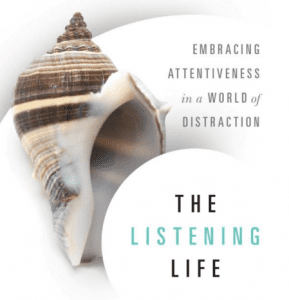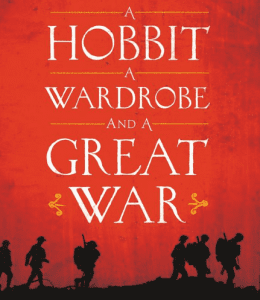 What do you get when you combine laser-like prose, masterful wit, an eye for BS matched for a penchant for vulgarity, a Lutheran-like perception of how law works in the Bible, an obsession with the magnitude of grace, an authentic admission of sinfulness, a progressive stance on homosexuality in the church, an informed sense of just where the church got it wrong and where it got it gloriously right, a fine ear for how the media and the world and intellectuals now like to pounce on the Christian faith in order to bang the common drum louder, a love for eucharist, and a belief that at the core of the Christian faith is forgiveness by the grace of God that makes some, but not always that much, difference, all enfolded in nothing less than the kind of prose that grabs you time and time again and yet a kind of theology that simply will not give you certainty?
What do you get when you combine laser-like prose, masterful wit, an eye for BS matched for a penchant for vulgarity, a Lutheran-like perception of how law works in the Bible, an obsession with the magnitude of grace, an authentic admission of sinfulness, a progressive stance on homosexuality in the church, an informed sense of just where the church got it wrong and where it got it gloriously right, a fine ear for how the media and the world and intellectuals now like to pounce on the Christian faith in order to bang the common drum louder, a love for eucharist, and a belief that at the core of the Christian faith is forgiveness by the grace of God that makes some, but not always that much, difference, all enfolded in nothing less than the kind of prose that grabs you time and time again and yet a kind of theology that simply will not give you certainty?
You get Francis Spufford’s Unapologetic: Why, Despite Everything, Christianity Can Still Make Surprising Emotional Sense (HarperOne). It is a one-of-a-kind apologetic for a one-of-a-kind’s faith, and yet an apologetic I suspect many might latch onto as the book unfolds. Some will jump ship here and some will jump ship there, but I suspect only the rigorously squeamish will say there’s nothing here. Few writing today affirm original sin, or least pervasive sin, with more unabashed centrality. Fewer still can write such leg-slapping and cheeky prose.
Here’s how the book works: His daughter has just turned six and society has conspired to make sure she will soon discover that her parents are “weird” because they “believe in a load of bronze-age absurdities” and are “dogmatic” and “self-righteous” and “stupid” and “enemies of the ordinary family pleasures” and “judgmental” and want others to “roast for all eternity” and he goes on with more of this stuff. In short, “we’re embarrassing.” He sees this as a bill of goods from modern marketing that fails both civility and empathy. Spufford thinks a faith that makes sense, emotionally to the core, is one that deals with reality – pain and suffering and injustice and death as we know it. He wants to defend that his emotions about how God deals with these matters is defensible because it makes sense.
Which is why he begins where he does: with sin. Only he is incapable of an uninteresting sentence and unwilling to succumb to time-worn words, so instead of calling it original sin he calls it – time and time again – the vulgar part comes through quite often – HptFtU – the human propensity to f- things up. That one makes total emotional sense to him, and to reality. He calls it the “crack in everything.” Sin today means indulgence (he’s British). Everyone awake long enough comes to realize the HPtFtU and when it happens the human faces reality about himself or herself and that’s where, so he argues, Christianity makes most sense. Because it faces humans with honesty about sin. The encounter “quietly discloses you to yourself.” Christianity, then, is a “league of the guilty.” That is, “We’re supposed to do our fallible, failing best to perceive the other bad people as kin.”
God. “The life of faith has just as many he-doesn’t-exist-the-bastard moments as the life of disbelief” (55, page cited so you can look it up) But he’s far less certain than even that: “If, that is, there is a God. There may well not be. I don’t know whether there is. And neither do you, and neither does Richard bloody Dawkins, and neither does anyone. It not being, as mentioned before, a knowable item. What I do know is that, when I am lucky, when I have managed to pay attention, when for once I have hushed my noise for a little while, it can feel as if there is one. And so it makes emotional sense to proceed as if He’s there; to dare the conditional.” If this God exists, he counters, then the only way to “register His presence” is through “some series or other of physically determined bodily states” – like emotions. So for him the way to get to God is because “it feels right.” “It’s elusive and it’s a foundation. It’s a wisp of presence.”
Reality. “The moral scandal of evolution is not that it contradicts some sweet old myth about God knitting little coats for the little lambkins: it’s that it works by, works through, would not work without, continuous suffering” (91, I’ll give the page number so you can quote with proper citation). Theodicy arguments don’t work for him. “How, then, do we deal with suffering?” His answer: “The short answer is that we don’t.” The only comfort is that we know we are loved, and that the Christian message is alarmingly realistic in that God enters into the suffering. That is, “all is not well with the world, but at least God is here in it, with us. We don’t have an argument that solves the problem of the cruel world, but we have a story.” What story is that?
Jesus. Or, has he calls him, Yeshua. And as fine a sketch of the paradox of the Man Jesus as one can possibly read. (The 5th chp is worth the book.) He ends the 4th with this: “For a Christian, the most essential thing God does in time, in all of human history, is to be that man in the crowd; a man under arrest, and on his way to our common catastrophe” (106). (On Jewish hopes for a Messiah: “It’s a no-show so far for Mr. Royal Oil.”) “It’s like a royal progress and a parody of a royal progress, all at once” (135). He adds more. “Claiming that a provincial rabbi somehow embodies the impulse behind billions of years of history and unthinkable expanses of space does not have much philosophical dignity to it as a position. It is – let’s be honest – the kind of silly thing that a cult would assert.” “Jesus dies like a migrant worker who suffocates in a freight container, like a garbage-picker caught in a slide, like a child with an infected finger, like a beggar the bus reverses over….” (161). So why then is the cross so central? The Christian faith “takes the existence of suffering seriously.” And forgiveness generated by grace … “It’s amnesty that’s being offered, not amnesia.”
Grace, which he calls the International League of the Guilty, Part Two. Here he lays his foundational theological argument: that grace goes all the way down to include everyone in God’s love, including those many Christians exclude – women and gays and lesbians are his focus. Christianity has a history with four major disasters: we use the cross as an excuse for inflicting pain, we downgrade grace (God forgives what we think is unforgivable) and here he doubles down on hell, we exercise power destructively in our certainty about the direction of our power, and our desire to keep Christianity conservative, always preserving the status quo. The church is precious, he contends, because its message is grace and forgiveness for us, those infected by the HPtFtU.
The core is found in the eucharist, where God meets us in our suffering and sin and death and mediates grace and forgiveness and hope.
Consequences. What happens to the forgiven? Well, if it isn’t already obvious it’s my fault: not perfection! Faith is a relationship in which fidelity brings “slow rewards.” That is, “You make faith our vantage point” so that “you get used to the way the human landscape looks from there.” Life then is about “Accommodating impossibility [the vision of Jesus] within the possible world is tricky” (211). “Manifestos can be built on Christianity, but Christianity itself is not a manifesto.” Perhaps the freshest turn of the corner in this book is when he affirmed Sarah Palin as a sister in Christ, something I find rare among American progressives (which tells me more about the dogmatism and intolerance of their progressivism than their faith, or perhaps it says more about the latter than the former). And he hopes that “she would recognize a brother in me, despicable gunless high-taxin’ Euro-weenie socialist that I am” (214, cuz I know you want to quote that).
A delightful read, mostly because Spufford’s entire vision of our faith is through the lens of our utter sinfulness and the need for God’s redeeming (but not yet perfecting) grace.











